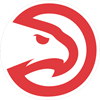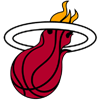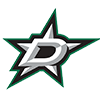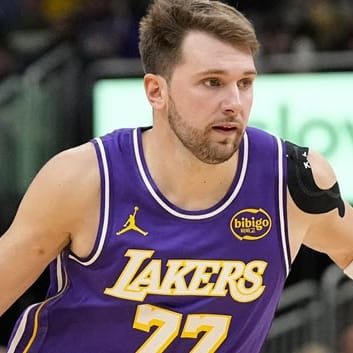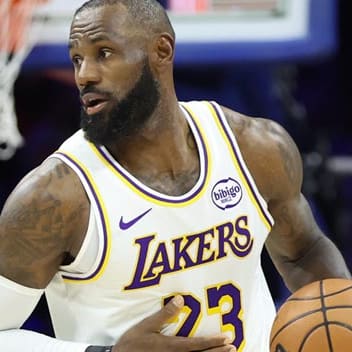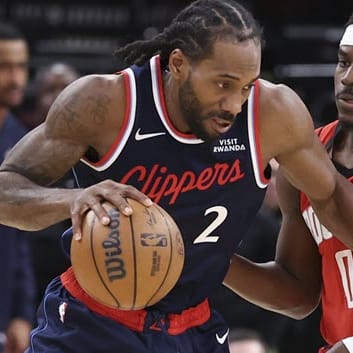While looking at NBA trends, we talked about the impact of the league's new anti Hack-a-Shaq rule, and the signs that it may be working. This week, I want to look into the other side of the free-throw market, the good shooters.
The free-throw market is in disarray, which opens loads of opportunity for managers who have noticed the shifting marketplace.
Shake-up at the top
For many years, free-throw percentage has been dominated by James Harden and Kevin Durant. The two have been head and shoulders above third place – not to mention the rest of the league – for the last five seasons (in Durant's injury-shortened 2014-15 season, Harden stood alone at the top). Last season the gap narrowed, but the story was the same. Since both players were top-five picks throughout that span, a team drafting either knew right away that they were starting with a dominant free-throw shooter and could build their teams accordingly.
Suddenly, there is a massive shake-up at the top. A new super-class has emerged, and it includes none of the old vanguard. Jimmy Butler, Isaiah Thomas, Damian Lillard, Kawhi Leonard and Steph Curry are the new top dogs. The gap between fifth-place Curry and sixth-place Gordon Hayward is larger than the gap between Curry and first-place Butler. Harden and Durant have fallen to ninth and 10th in free-throw impact, respectively.
No longer elite picks
This shakeup is massive and has a deep impact on the fantasy landscape. For
While looking at NBA trends, we talked about the impact of the league's new anti Hack-a-Shaq rule, and the signs that it may be working. This week, I want to look into the other side of the free-throw market, the good shooters.
The free-throw market is in disarray, which opens loads of opportunity for managers who have noticed the shifting marketplace.
Shake-up at the top
For many years, free-throw percentage has been dominated by James Harden and Kevin Durant. The two have been head and shoulders above third place – not to mention the rest of the league – for the last five seasons (in Durant's injury-shortened 2014-15 season, Harden stood alone at the top). Last season the gap narrowed, but the story was the same. Since both players were top-five picks throughout that span, a team drafting either knew right away that they were starting with a dominant free-throw shooter and could build their teams accordingly.
Suddenly, there is a massive shake-up at the top. A new super-class has emerged, and it includes none of the old vanguard. Jimmy Butler, Isaiah Thomas, Damian Lillard, Kawhi Leonard and Steph Curry are the new top dogs. The gap between fifth-place Curry and sixth-place Gordon Hayward is larger than the gap between Curry and first-place Butler. Harden and Durant have fallen to ninth and 10th in free-throw impact, respectively.
No longer elite picks
This shakeup is massive and has a deep impact on the fantasy landscape. For the first time in many gamers' fantasy lives, the cost of free-throw dominance is not a pick at the very beginning of the draft. By Average Draft Position (ADP), the new top dogs were selected 16th, 27th, 12th, 10th and third. Since these players were acquired for so much less, owners are also more likely to part with them in a trade, but we'll talk more about that later.
Degree of dominance
These five new free-throw leaders are ahead of everyone else by a lot. They lead the peloton by more than Durant and Harden did last year. That means any of the five change a fantasy team's free-throw percentage by at least as much as Durant or Harden would have last season.
The market of expectations
Teams who drafted Harden or Durant thought they were positioning themselves for free-throw dominance. While they got great players, those two are falling short of expectations. In standard snake drafts, unless they picked up Isaiah Thomas, they lack the elite help in this category – since the new elites were probably selected before they got a second chance. This particularly important because, since Harden and Durant were drafted so early and free-throw dominance is a part of their reputation, these teams were likely built with free-throw performance in mind.
Teams who drafted any of the new elites got more than they bargained for. They thought they were getting a good free-throw shooter, not one that would dominate. They may even have been unaware of their selection's skills from the stripe, as all five have many abilities, and some draft strategies call for ignoring the percentage categories. It is much less likely that these owners built their teams with an eye toward free-throw performance.
Both parts of this combination – decline from the old guard and the emergence of a new class – were unexpected. It creates a market mismatch.
In discussing the free-throw marketplace, two more players require attention. They are Hayward and DeMar DeRozan, ADPs of 48 and 32. These two rank sixth and eighth, respectively, in free throw impact, and because of their relatively low ADPs, they could be paired with any of the players mentioned so far. DeRozan's strength here was predictable, as he was already a top-10 charity striper before this season, though it received little attention. Gordon, on the other hand, was just a garden-variety good free throw shooter before, and his improvement was less foreseeable. Low ADP and unpredicted success, combined with the total shift in who is at the top of the rankings, turn Hayward and DeRozan into wild cards wreaking havoc on the market. They will work as important signals, pointing us toward or away from possible trade value.
Finally, we recall last week's findings. The worst players are attempting fewer free throws, and making less of a negative impact than they once did. These players are undervalued in the fantasy marketplace.
Using the new market – Overcoming the big three
As we found last week, for the first time in years, fantasy teams can own one of Dwight Howard, DeAndre Jordan and Andre Drummond and also be a competitive free throw team – it may not be easy, but it is at least reasonably possible. More important, as we're discovering now, this can be accomplished without owning a top-five fantasy performer. Those two sentences represent a major shift in the free throw marketplace.
Using the new market – Plan 1: Make an elite yours
Many in the fantasy world are unwilling to trade a top five fantasy player*. For the first time in half a decade, that is no longer an obstacle to obtaining an elite free-throw shooter.
Managers often are slow to adjust to new realities, even if the new realities help them. Butler's owner may not realize that Butler is performing as a top-10 fantasy player. Even if the owner is aware, he may be concerned about missing his window to "sell high." Try offering the Butler owner your best late-round or waiver pickup and your second-round pick. Try the same thing with a Thomas owner, except try it with your third- or fourth-round pick. You are the clear winner of both of those hypothetical trades now, yet many Butler and Thomas owners are likely willing to make that move.
* Note: you should always be willing to trade any player, as long as you can get the right price. Never shut down the conversation by making a player off limits. Make the price high if you want, but always entertain the possibility of a trade.
Using the new market – Plan I: Rip off Durant or Harden owners
The worst possible scenario is that the Harden or Durant owner in your league already owns Hayward, DeRozan or Thomas. If that happened, then though those teams took the scenic route, they ended up where they were trying to go.
Without those three, however, Durant and Harden owners are likely frustrated by their team's underperformance. The path from frustration to bad fantasy decisions is as clear as Yoda's path from fear to the Dark Side. Target these teams in trades. They are unlikely to give up Durant or Harden, in which case, target someone they could blame for dragging down the lineup. Big men are an obvious place to look, but also look for players like Jeremy Lin, Jrue Holiday, Jabari Parker and Trevor Ariza – all are worse-than-you-may-think from the line, and could be available at a discount if they are on one of these teams.
Alternatively, you could point out to the Harden or Durant owner that we now live in a new world order, and they should give up the dream of a dominant free-throw shooting team. Offer them value in another area of interest to them, and try to offload one of your worst free-throw shooters.
Using the new market – Plan A: Swindle owners of the new elites
Look for a team that has any two of the new elites, Hayward or DeRozan. That team ended up with a way better free-throw shooting team than they were planning for, and they should be willing to make a trade. In my favorite league, one team ended up with Thomas, Leonard and DeRozan – they are too much better than the rest of the league, which is a waste of value.
With these teams, you can do one of two things. You can look to them as a place to offload your biggest free-throw drain, since they can take the hit and stay on top in the category. Alternatively, you can try to take one of their greats, which would have a dramatic impact on both teams.
These dramatic shifts in the free-throw market have resulted in many teams having different value than they planned for in October. Which so much change, there is trade value everywhere. Go out and capitalize off it.
















